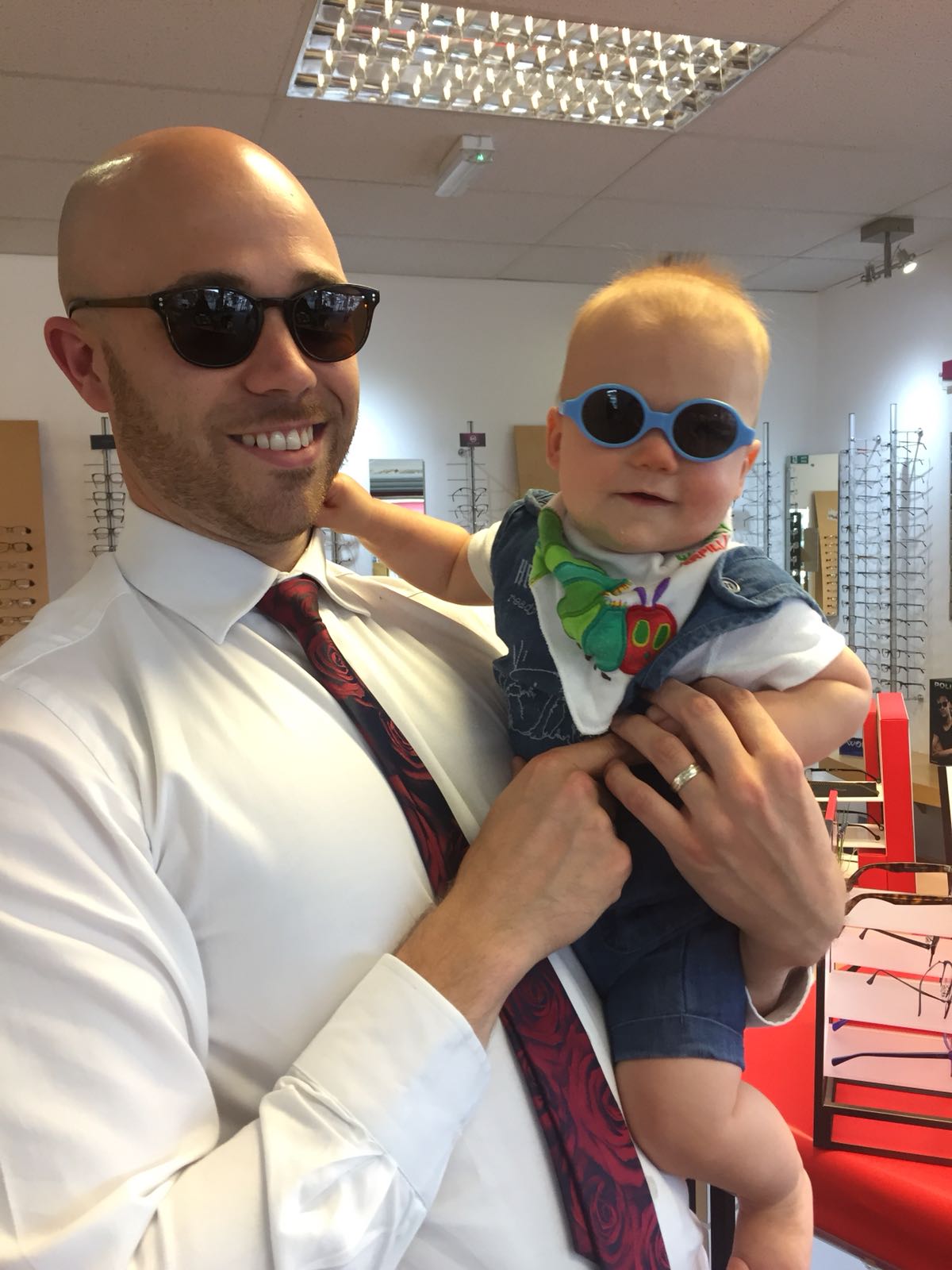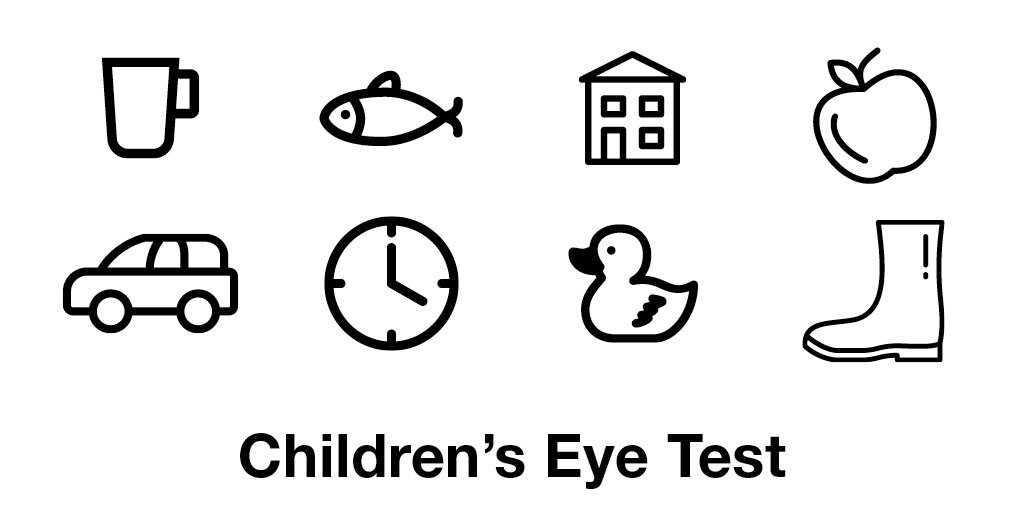Blog, News & Offers
Children's eye care awareness
Posted on Friday, June 7, 2019


Having personally specialised in children's eye care for 10 years and recently becoming a father for the first time it only seemed fitting to do our very first blog post on Children's eye care.
Hopefully we can try to educate fellow parents and dispel some myths you may have heard from a friend of a friend.
The first 8 years of life are known as the critical period for sight development. This is the period in a child's life where all visual function develops and when the vision is still in its elastic stage, so any developmental issues can have the potential of being corrected.
This is a “use it or lose it” stage of life where problems which are not dealt with may be irreversible or the potential for treatment success reduced.
Here are some commonly used words associated with sight development:
Amblyopia is the fancy word for a lazy eye, where the eye is healthy but the vision has not developed at the same rate as the other, "good" eye. If detected early and before the end of the critical period, serious differences in vision, between eyes can be reversed.
Strabismus is the fancy word for a squint, where the eye turns in a different direction to the fixing eye. Sometimes these squints can be rectified just by giving the child the spectacles they need. Other times surgery may be needed to rebalance the muscles with one another. Either way the sooner this action is taken the more likely a child’s binocular vision may develop.
When should you get your child’s eyes tested?
Definitely before they start school. What If they can’t see the board? What if their near vision is blurry? All of these things will deter their start in education.
However if you have any concerns ever about a child’s eye sight, you have a family history of childhood eye problems or you think a squint may be present get them seen sooner. These issues are best dealt with before the child is 3 years old.
Many districts run a school screening program run by Orthoptists from the local hospital eye department, where children are tested for vision and binocular vision issues in Reception. However they have a lot of schools to cover within the year and it may be towards the end of the year with some children approaching their 6th birthday when they are seen leaving limited time to treat any issues detected.
What if my child doesn’t know their letters or even isn’t speaking yet?
Your child doesn’t have to know their letters to have an accurate sight test. In fact a child doesn’t even have to speak to have an accurate sight test.
Matching cards and pictures are used for preschool children (see attached picture) and cards with an image on one half are used to observe babies responses (using their inquisitive nature).
Drops can also be used if the responses given are unreliable or inconsistent, the drops mean we can measure for spectacle prescriptions by just using light and moving it across the eye. These drops also make the pupil large so we can have a good look inside the eye.
NHS, children and glasses.
Sight tests are free for any child under the age of 16 and a voucher is issued towards the cost of spectacles if needed. The cost of some children’s glasses will be fully covered under these vouchers.
Top tips.
• New-born’s sight is very blurry and insensitive to colour for the first few months of life so don’t worry if you think they can’t see you from across a room etc. Download an app called “Babysee”. This uses your phones camera to show you what your baby’s sight is like at their current stage of development.
• According to research, Vision is responsible for 80% of all learning in a child’s first 12 years. Having children’s eyes tested before they start school and yearly throughout is therefore recommended to prevent any avoidable obstacles in their education.
• New research shows that the majority of the suns UV exposure and therefore damage occurs in our eyes during childhood. However children who wear sunspecs are as few as 3%. Something to think about for sure!
• All Children’s glasses must be supplied and fitted by a registered Optician in accordance to UK law. We have at least one Dispensing Optician at each of our practices who are the experts in frame and lens selection and fitting.
Blog Search
Blog Categories
- News & Offers (50)
Blog Archives
- August2023 (1)
- April2023 (1)
- November2022 (1)
- October2022 (2)
- September2022 (1)
- August2022 (3)
- June2022 (3)
- May2022 (3)
- March2022 (3)
- December2021 (2)
- November2021 (1)
- June2021 (1)
- May2021 (1)
- April2021 (2)
- March2021 (2)
- February2021 (4)
- January2021 (1)
- December2020 (1)
- November2020 (2)
- October2020 (1)
- September2020 (3)
- July2020 (1)
- April2020 (2)
- March2020 (2)
- October2019 (1)
- July2019 (2)
- June2019 (1)
- February2019 (1)
- January2019 (1)